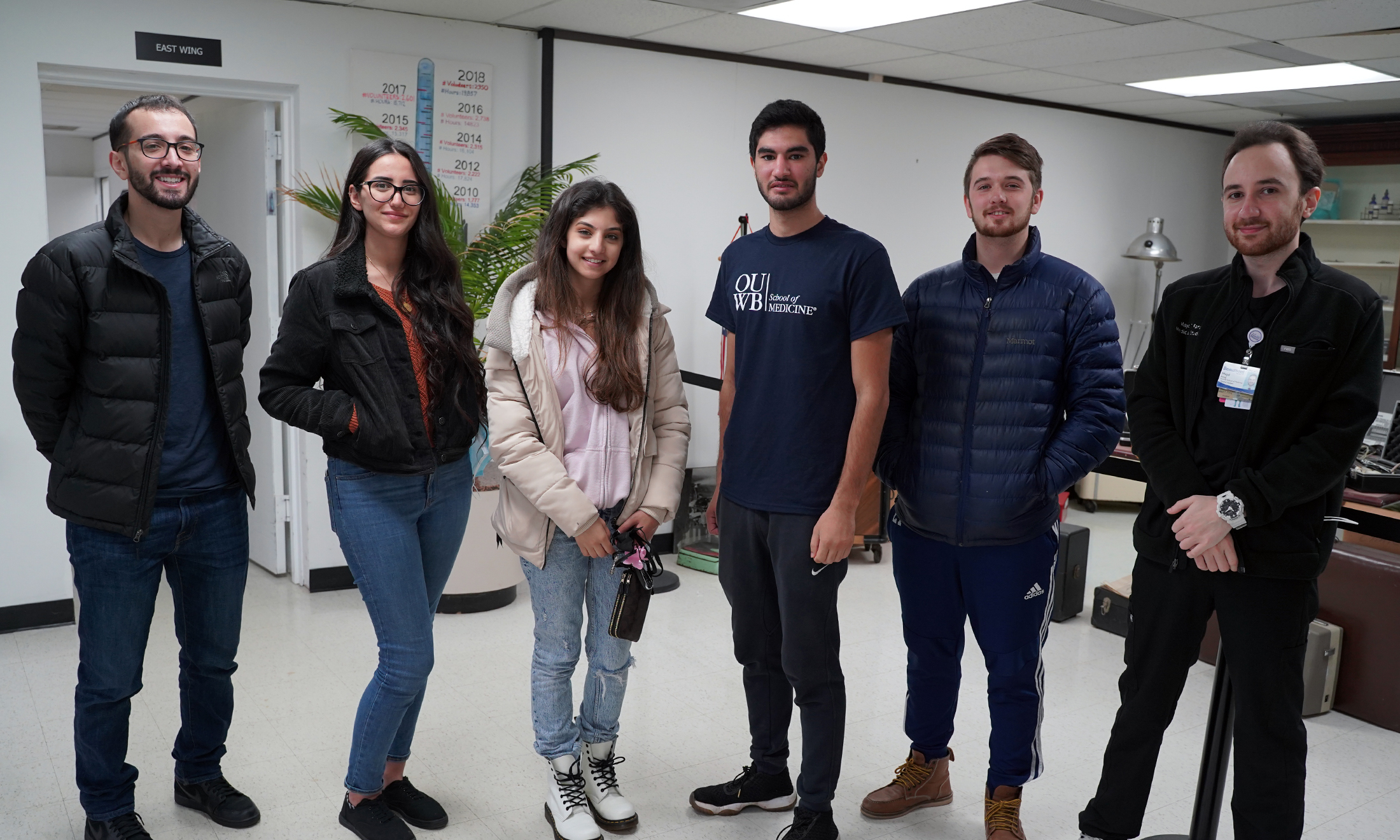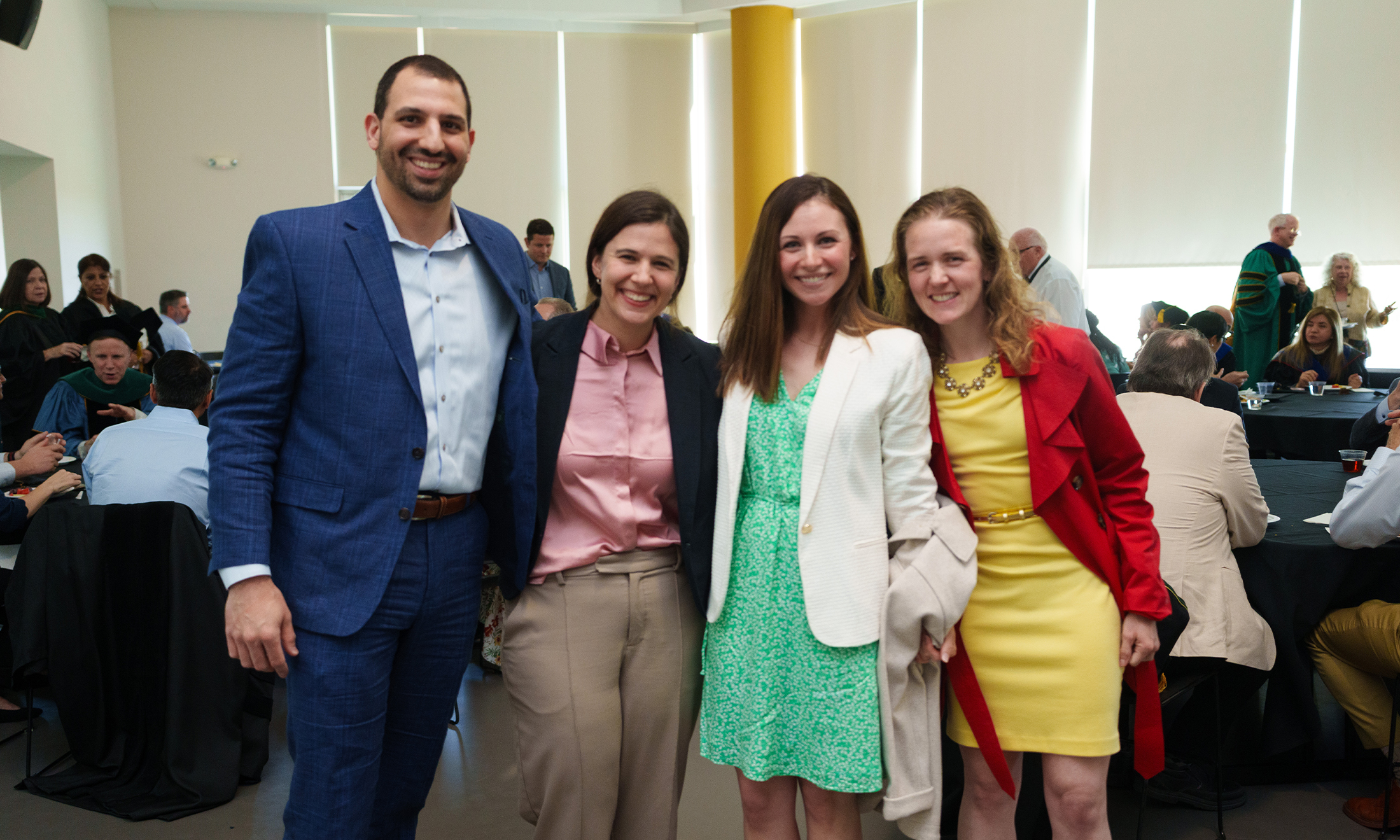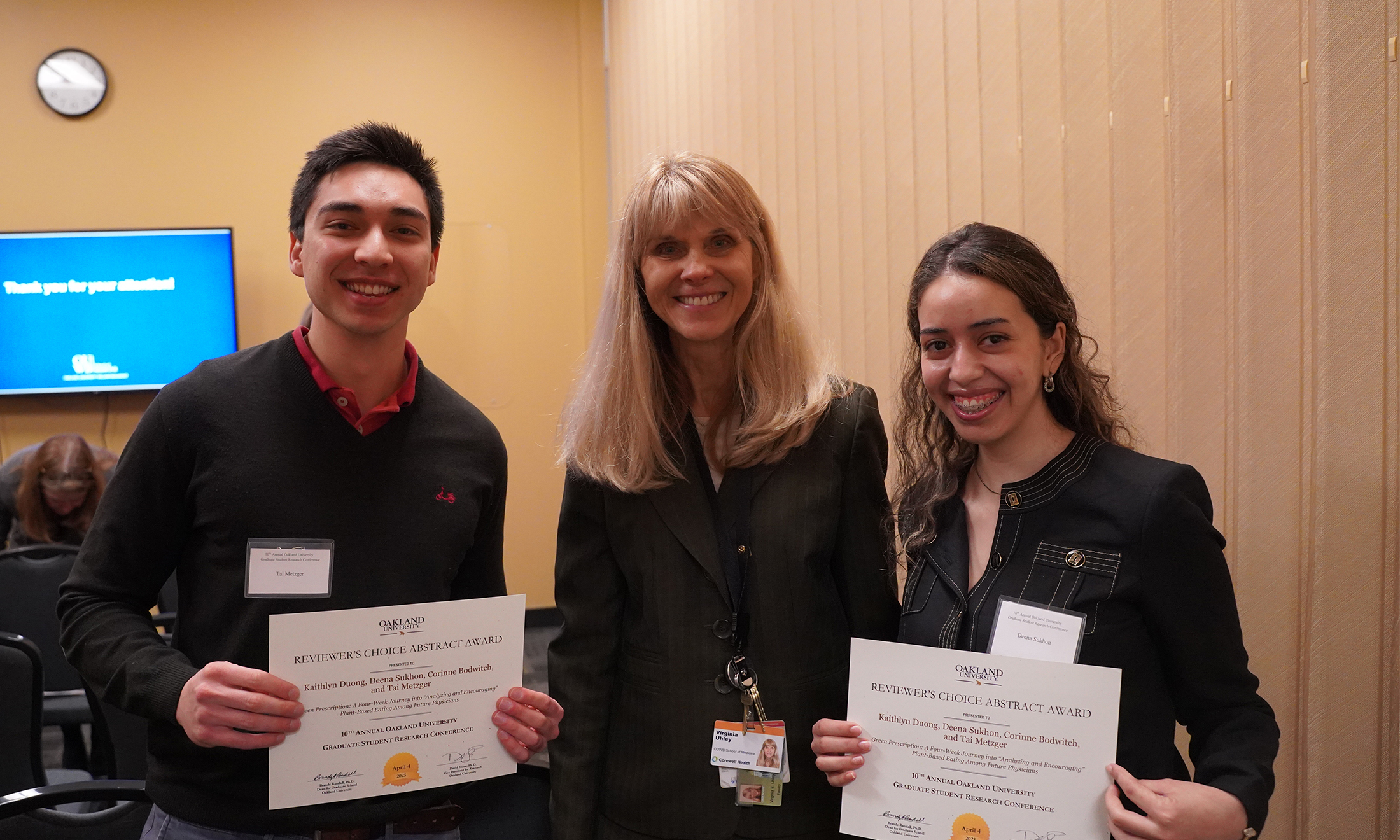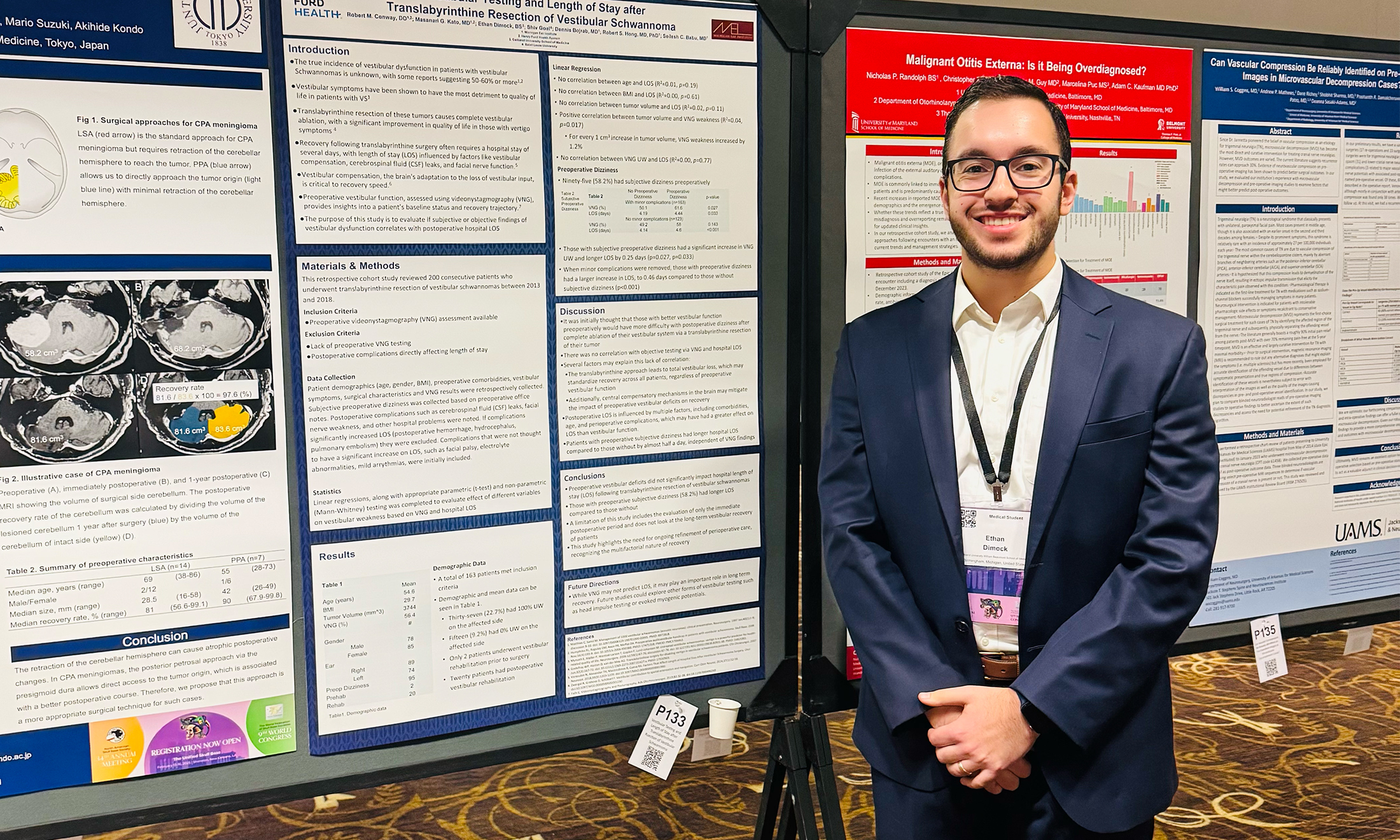Addressing Lebanon’s ‘colossal challenges’
Group of OUWB students leads food drive for economically depressed region
A group of students from Oakland University William Beaumont School of Medicine is leading a food drive for Lebanon — currently in the midst of what’s been called “one of the most severe global crises” in more than 150 years.
Working with Southfield-based World Medical Relief, the group aims to help those in need while building on the success of a similar campaign led in 2020 by Majd Faraj, a third-year medical student at OUWB who describes himself as “passionate about helping people in Lebanon.”
In addition to Faraj, other students working on the new project are Mark Kamash, M1, Haidar Hojeij, M1, Batoul Mazraani, M1, Quinn Simpson, M1, and Daniellla Ghaffari, an OU pre-med undergrad student and president of the school’s Lebanese Student Association.
“We all have a passion for giving back and we want to make a difference and help the people as much as we can,” said Hojeij.
Simpson expressed similar feelings.
“As people with an interest in medicine, most of us are kind of predisposed to also have an interest in global health,” he said. “There are a lot of places that aren’t doing as well as we are…we recognize that and this is a good way to help communities that are really in need.”
Lebanon’s ‘colossal challenges’
Faraj, a Lebanese American, launched a campaign in the summer of 2020 to help deliver medical supplies to Lebanon. He worked with World Medical Relief to get supplies to Rafik Hariri University Hospital, a major nonprofit hospital in the country.
He also launched a GoFundMe page aimed at raising money to offset costs associated with the overall mission.
In the middle of the campaign, disaster struck on Aug. 4, when a large amount of ammonium nitrate stored at the Port of Beirut exploded. It caused more than 200 deaths and left about 7,000 injured.
Support for the campaign led by Faraj increased rapidly following the tragedy. As a result, the campaign ultimately was able to send about $2 million worth of medical supplies to the region.
Faraj called it “so fulfilling” to see videos of the supplies being delivered and received.
However, as The World Bank reported earlier this year, Lebanon generally continues to suffer from an economic depression. To put in perspective, World Bank said the crisis ranks among the world’s worst since the mid-nineteenth century.
“In the face of colossal challenges, continuous policy inaction and the absence of a fully functioning executive authority threaten already dire socio-economic conditions and a fragile social peace with no clear turning point on the horizon,” the organization wrote.
Among other challenges, World Bank reported that more than half of Lebanon’s population is likely below the national poverty line. A problem compounded by the bulk of the labor force being paid in Lira, which is “suffering from plummeting purchasing power.”
‘Try to make a difference’
To determine specific needs of people in Lebanon, Faraj said he worked with a food bank in the country.
He also reached out to the first-year medical students at OUWB to recruit others interested in helping with this year’s campaign. The hope is to make it an annual event for OUWB.
Mazraani said being involved with the campaign is all about paying it forward.
“In general, we feel like we’re privileged here, yet we see what’s going on in Lebanon…we should try to make a difference there knowing about all of the suffering that’s going on,” she said.
Ghaffari said her parents immigrated to the U.S. from Lebanon and that she feels a deep connection to the country and her people.
“We have a nice house and food on the table,” she said. “There are many people in Lebanon who aren’t able to have those things. I’m very proud to be Lebanese and I want to see the country do well…this is one way I can do something to help.”
Donation sites are currently being determined.
Next spring, the group hopes to send one large shipping container full of food, medical supplies, and other needed items. Such shipping containers are large, able to hold about $500,000 in medical supplies (the value of the food will be dependent on what’s donated).
The logistics of getting the container to Lebanon will be facilitated with World Medical Relief, a longtime Compass community partner.
World Medical Relief, established in 1953, collects and distributes excess medical supplies, medicines, and recycled medical equipment and redistributes everything to those in need. Donors include the likes of Beaumont Health, University of Michigan Hospital, and more.
George Samson, Ph.D., president and CEO, World Medical Relief, said in addition to helping coordinate shipping of donated goods, the organization is helping connect the students with food makers who might have donations.
He called the efforts of the group “incredible.”
“It’s a big deal for them to be able to mobilize all of the students who will be working on this effort, from end-to-end,” he said.
Hojeij said he’s heard of people living on only rice and potatoes for months. As a result, he said it will be easy to determine if the food drive is worth the effort.
“As long as you help even one person, or one family, that’s enough,” he said. “Even the smallest thing we can do is going to have a positive impact.”

 December 21, 2021
December 21, 2021
 By Andrew Dietderich
By Andrew Dietderich









